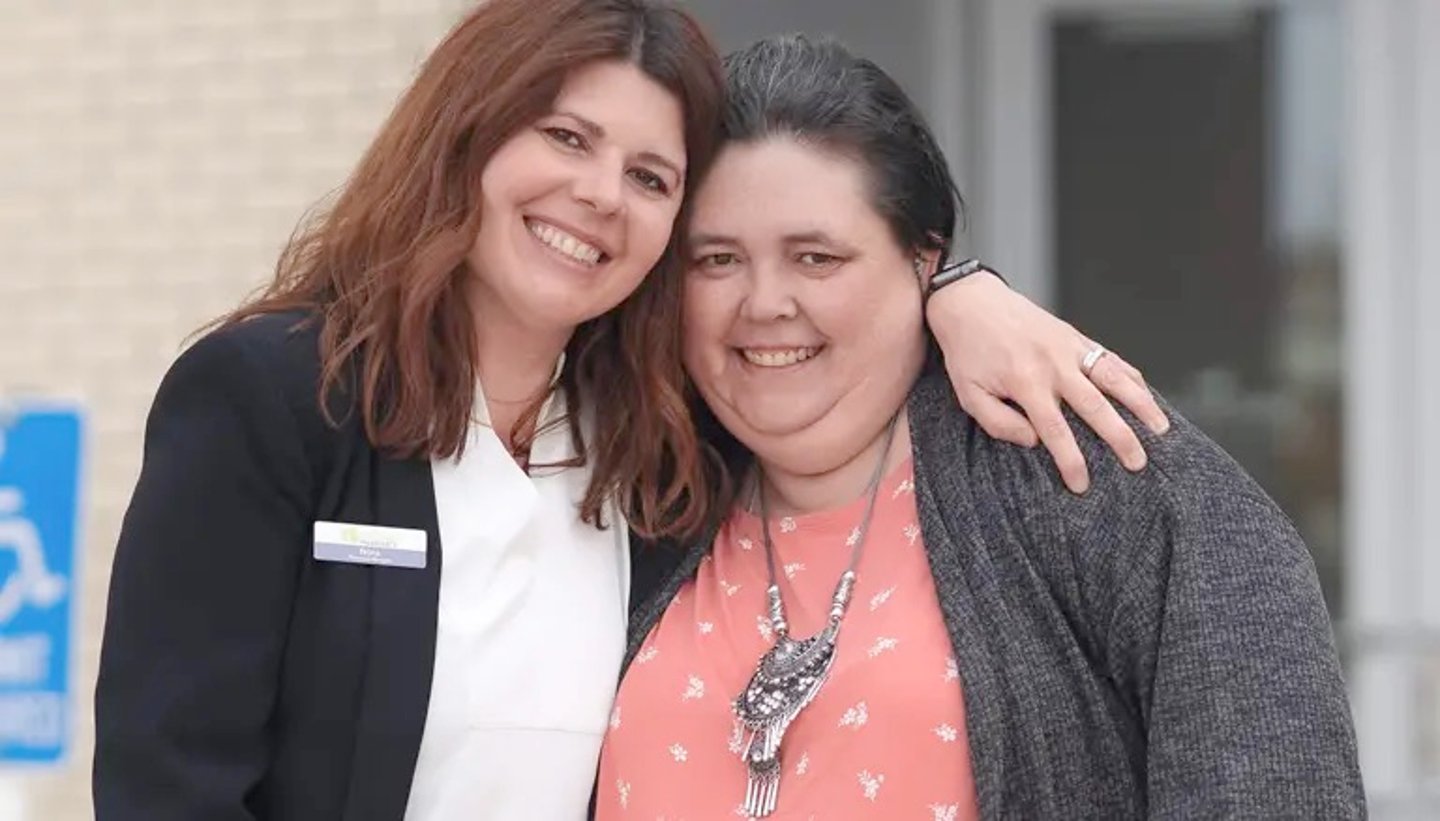Embracing change: Specialty pharmacy in Saskatoon
Colleen Guggenberger likes to laugh. Even when life throws yet another curveball.
“You can laugh or cry in life. There are times when I do cry, but that’s not the way I choose to live,” says Guggenberger, 51, of Cut Knife, Sask., who has had severe asthma since childhood and Crohn’s disease since her early 20s.
The laughter is sometimes rueful when discussing her latest curveballs: finding a family physician; coping with a new diagnosis of rheumatoid arthritis; preparing for cataract surgery; and complying with the provincial government’s policy to switch from an originator biologic to a biosimilar.
The switch has been challenging. Before the new policy, Guggenberger and her gastroenterologist had been considering a different originator biologic due to the possibility that the cataract may have been a complication of the current originator, which she’d been taking for almost eight years. Until that’s finalized, she’s switched to a biosimilar, but her symptoms have worsened. “My numbers for inflammation are really high. I’ve never had numbers like this. I hurt and I’m off work and it’s frustrating.”
Despite the challenges, Guggenberger, who is a librarian and tech specialist at the local school, is confident that “everything will get fixed. I know because I have a good team behind me.” In addition to her gastroenterologist and rheumatologist, Nora Kovitch, Pharmacy Manager at the BioScript Pharmacy in Saskatoon, is a huge part of that team.
“Nora is my rock,” states Guggenberger. “The biggest thing is that she takes the time to listen. She hears me. I’ll talk about my health, then she’ll always say something like, ‘Yes, but how are you?’ I can’t tell you how much of a difference that makes.”
Kovitch started providing care to Guggenberger soon after she began working at BioScript in 2015. Before that, she had worked in community practice since graduation in 2002. “What I loved most of all was the patient interactions. Really getting to know them was everything,” Kovitch recalls.
When a former colleague asked her to consider joining BioScript, “it was a hard decision to leave community practice. I didn’t know much about BioScript or specialty pharmacy,” recalls Kovitch. “Then the more that I learned, the more eager I was to change focus and become a specialty pharmacist. I haven’t looked back.”
In specialty practice, Kovitch could build relationships like never before. And that, she emphasizes, is key when working with patients who are often emotional due to the complexity of their illness or the pathway to treatment. “It takes time to build trust and break down barriers. Everyone reacts differently. Being empathetic is very important,” says Kovitch, who became a Certified Specialty Pharmacist in 2021.
Managing information overload is also usually very much a factor. “Constant communication is key because there are so many things that are very important, especially when they’re starting out,” she adds.
Ryan Chorney of Regina can attest to that. The 42-year-old, a production operator in the mining sector, began feeling sick in early 2021. A few months later he was diagnosed with Crohn’s disease. “It was quite a shock, not only for me but my family. And then I declined very quickly. I ended up being in the hospital for a month and off work for three months,” he says.
BioScript contacted him while still in the hospital, soon after his first infusion of a biologic. “I was still in a pretty traumatized state. You’re not thinking on all cylinders. BioScript walked me through everything. There was good coordination between them and my specialist. I must have called them at least a dozen times, asking silly questions I’m sure, but they took the time and never brushed me off. They definitely helped with my recovery,” shares Chorney.
As required by the government, he recently switched to a biosimilar. The process went smoothly, with BioScript there every step of the way. “I am so grateful for the level of care from BioScript and for the medication. I can live a normal life again,” says Chorney.
It’s worth noting that, aside from injections and injection training, almost all the care is provided virtually over the phone. “It’s very interesting what people will divulge over the phone and how comfortable they feel. It’s a misconception that you can’t develop a strong relationship if you’re not face to face,” says Kovitch.
The BioScript Pharmacy in Saskatoon serves approximately 5,000 patients across the province and is staffed by five pharmacists, 11 pharmacy assistants and two licensed technicians. Kovitch emphasizes that the assistants and technicians have “huge roles” in both the coordination of services as well as navigating reimbursement from public and private payors. “We rely on one another so that each of us can really give patients our undivided attention and time.” For patients who also take non-specialty medications, Kovitch uses the province’s pharmaceutical information system to check for drug interactions and works with the community pharmacy as required. Both Chorney and Guggenberger are positive about their respective community pharmacies and understand the need for the two different types of pharmacy practice.
Published with kind permission of Canadian Foundation for Pharmacy.

